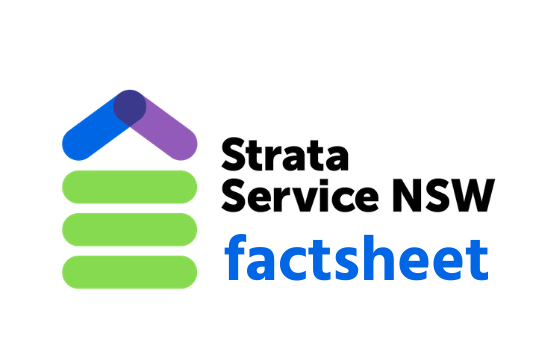All strata schemes have by-laws which strata owner-occupiers and tenants should be up to date with. Marrickville Legal Centre’s statewide Strata Collective Sales Advocacy Service have broken down strata law to explain what these are and who they apply to.
Understanding strata by-laws

What are by-laws?
By-laws are the rules that owners, occupiers, tenants and in some cases, visitors in a strata scheme must generally follow. They may set out the rules around behaviour of people living in a strata scheme and the use of common property. They can also set out the rights and liabilities and offer ways to resolve disputes. Whilst model by-laws do exist, a strata scheme may create its own by-laws to meet its specific needs, meaning that each set of by-laws can be different.
By-laws are not the same as “House Rules”, which are informal rules for use of common property in strata schemes. House Rules that are not by-laws are not enforceable.
How are by-laws made?
By-laws must be formally adopted and/or amended by special resolution at a general meeting of the owners’ corporation. Once passed, they must then be lodged with the strata plan, and registered with the Registrar General at NSW Land Registry Services within 6 months of the resolution passing.
A by-law has no force or effect if it is inconsistent with the Strata Schemes Management Act 2015 (NSW), or any other laws.
All owners and tenants must be notified of any changes in by-laws. Consolidated by-laws should also be made available upon request.
Where can I find the by-laws?
By-laws can cover a range of matters, in relation to the “management, administration, control, use or enjoyment of the lots or the common property”, but there are some limitations. For example, a by-law cannot prevent a child from occupying a lot.
As each scheme has its own by-laws, it is important to be aware of those specific to your scheme.
If a by-law is “harsh, unconscionable or oppressive”, the NSW Civil and Administrative Tribunal (NCAT) can make orders revoking, amending, changing, or otherwise invalidating a by-law.
Short-term rentals
By-laws can limit short term rental accommodation arrangements (e.g., Airbnb; Stayz) where the lot in a strata scheme is not the host’s main place of residence.
Pets
The owners’ corporation can make pet related by-laws, to either permit or prevent pets living within the scheme. It is important to follow the specific by-law in your scheme on pets as many will have specific requirements for approval. If you have an approved pet, it is important to ensure they are not causing disruption to other residents.
No by-law should prevent the keeping of a trained assistance animal.
Noise
Most strata schemes have by-laws about noise in a strata scheme which aim to prevent any noise which is likely to disturb peaceful enjoyment by a person of a lot, or common property.
Smoking
By-laws can also ban smoking on common property or ensure second-hand smoke does not enter other lots or common property. The owners’ corporation can also pass a by-law to create specific smoking areas on common property.
Nuisance and hazard
By-law issues ordinarily tie in with the nuisance and hazard provisions under the Strata Management Act 2015 (NSW). For example, this can include causing nuisance or hazard to another resident through playing loud music, using power tools late at night or using common property in a way that unreasonably interferes with others in the scheme using and enjoying it.
Note: Smoke penetration from one lot to another lot has be found to be a nuisance and a hazard in strata schemes in some circumstances.
How are by-laws enforced?
The owners’ corporation, the strata committee or strata managing agent (if delegated the authority), can issue a Notice to Comply with the by-laws if they believe an owner, occupier or tenant are in breach of a specific by-law. This notice must include which specific by-law has allegedly been breached and ask to stop the relevant conduct immediately.
Within 12 months after issuing a Notice to Comply, the owners’ corporation may decide to apply to the NCAT for a civil penalty if the conduct continues and/or an order to comply with a by-law. If an owner or occupier is found to be in breach by NCAT, a civil penalty of up to $1,100 may be issued for the breach at first instance.
If NCAT has already fined the owner or occupier within the last 12 months for a breach of the same by-law, they can impose a penalty of up to $2,200. The owners’ corporation does not have to issue another notice to comply to apply to NCAT again.
How can a by-law dispute be resolved?
To encourage a quick resolution and approach a by-law issue less formally, it is possible to attempt to resolve the issue with another person directly, or through Fair Trading’s Mediation services.
Marrickville Legal Centre may offer free legal advice on some matters related to by-laws in your strata scheme.
If you live in New South Wales and need legal advice about your strata scheme, you can contact our service on 02 9559 2899 or submit a web enquiry.
This page is not legal advice. The legal information contained on this page is current as at 20 January 2021.
